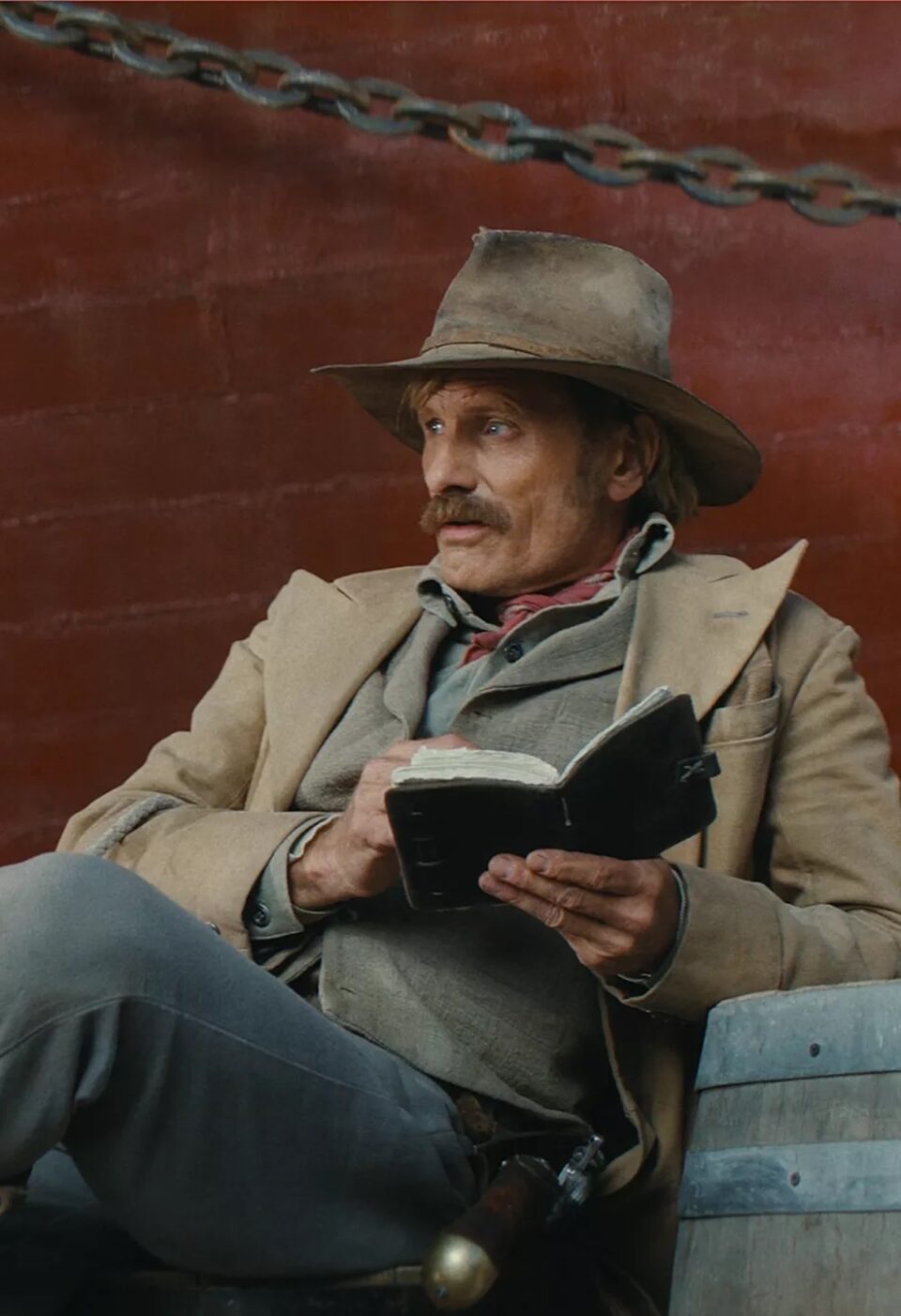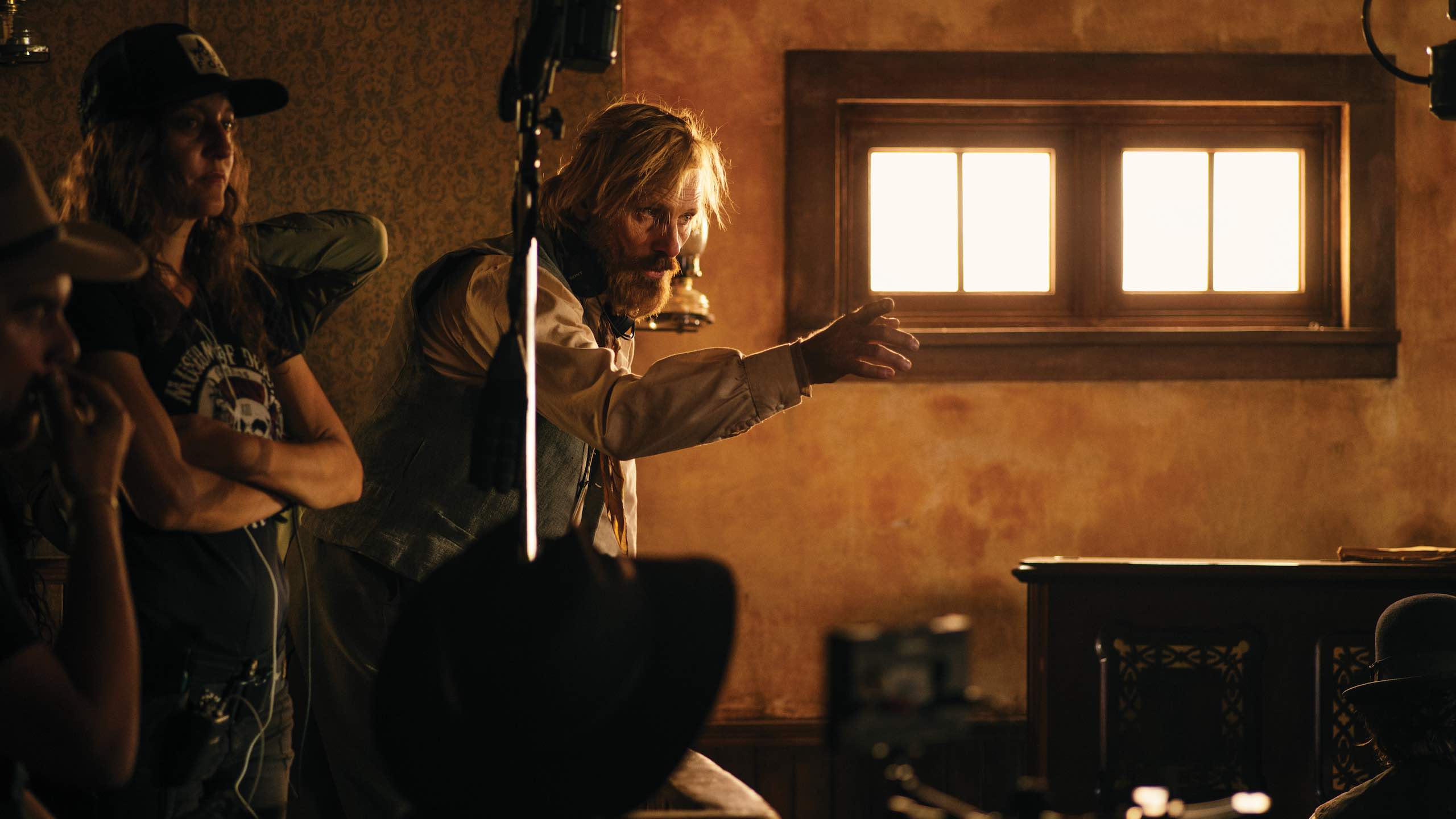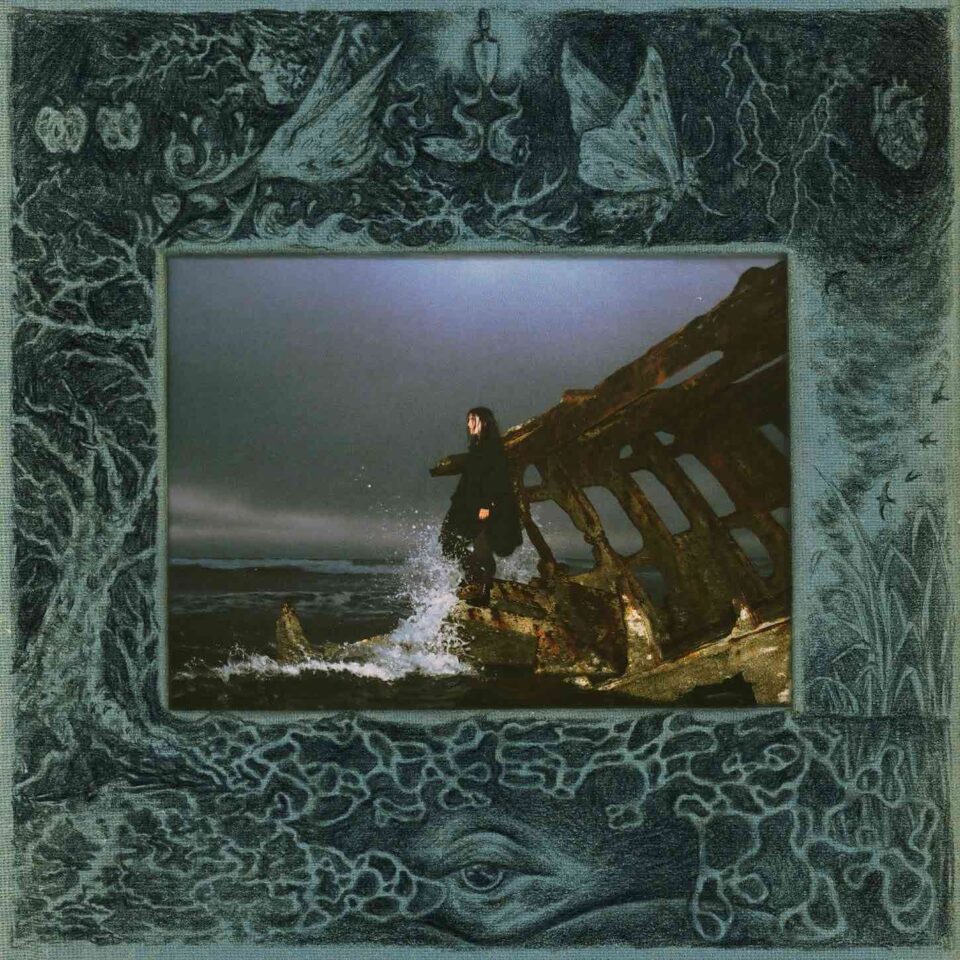After an acclaimed career as an actor in hugely successful movies such as the Lord of the Rings trilogy, A History of Violence, and Green Book, Viggo Mortensen has begun stepping behind the camera in order to bring his unique perspective to untold stories. Following on from his 2020 directorial debut Falling, Mortensen returns with a heartfelt Western, The Dead Don’t Hurt, in which he co-stars alongside Vicky Krieps and for which he also composed the music.
The new Western subverts the “damsel in distress” genre trope and makes a strong female character the focal point of the movie. Set in the 1860s, The Dead Don’t Hurt follows two immigrants who are attempting to forge a life in a corrupt Nevada town. When Olsen (Mortensen) leaves to fight in the Civil War, Vivienne (Krieps) is left behind to fend for herself until he returns.
With the film being released in select theaters this week, we spoke with the filmmaker about subverting genre tropes, pacing his writing projects, and learning to direct from some of the most acclaimed filmmakers of our time.
What is it about the Western genre that lends itself to these character explorations?
Like most people of my generation, I grew up watching them. There were several Western series in the 1960s and you could go to the movie theater once in a while to see a Western—it wasn’t completely unusual as it is now, although there are a few coming out this year. It’s now viewed as a retro genre.
Did you always plan to write a Western?
No, I didn’t really set out to write a Western. I set out to write a story about a woman named Vivienne and then decided to place her in that historical period. I thought for an independent and strong-willed woman that it would be more of a challenge for her to be in a society that was lawless and dominated by a few unscrupulous and powerful men. I thought that would create more of a contrast.
A big narrative device of the Western genre is the idea of the “damsel in distress.” This is quite the opposite of Vivienne, as the traumas she’s endured have instead made her more resolute.
Psychologically, Vivienne is stronger than Olsen and the bad guys. She’s psychologically the strongest person there, even though she’s limited psychically in a believable way. She’s an ordinary woman, but just happens to have an unusual courage and sense of decency. I don’t think Vivienne is a one-off. There were probably lots of women who were tough, but it isn’t usually seen in Westerns. Normally, you don’t stay with the women when the guy goes off to war, and I wanted to explore that: What happens to the women and little girls when their husbands, brothers, and sons go off to fight? You normally go with them, but in this case we made a conscious decision to not do that. This movie is about her, so I wanted to see what happens to her.
“I don’t think Vivienne is a one-off. There were probably lots of [frontier] women who were tough, but it isn’t usually seen in Westerns.”
You composed the music for the movie yourself. I especially enjoyed the credit scene. How important was a moment like that?
I’m glad you liked that and watched through the credits. We had one crack at that last shot with the sun going down. If you didn’t like the movie, then you’ve probably left the theater already. But if you liked the movie and you’re invested in the characters, then it’s a chance for reflection where you can ask, “What’s going to happen to this man and this boy now?” “What have I just watched?” “How do I relate this to my life?” It’s a time for reflection, and musically it was a chance to revisit variations of themes you’ve heard throughout the movie.
Throughout your career, you’ve worked with some of the best directors of all time, from Ron Howard to Cronenberg to De Palma. What’s the best piece of advice you’ve been given that you’ve carried from acting to directing?
I’ve been fortunate. I’ve been able to work on good stories and work for really talented people and people who are efficient in terms of shooting. The two things I’ve learned from all of them—no matter how different their movies might be, or how different they are as people—is that these women and men all prepare their shoots really well. They’re ready on the first day and have a clear idea of what they want to accomplish. The second thing is that no matter how well thought-out everything is, they remain open to contributions and ideas that might come from the cast or crew. The best directors aren’t intimidated by someone coming up with an idea or question—they consider it, because it might be a better idea than my approach for this particular moment. I’ll use it, why not? We only get one chance to tell this story, so let's make the most of it as a team.
“The best directors aren’t intimidated by someone coming up with an idea or question—they consider it, because it might be a better idea than my approach for this particular moment.”

After you finish a time-consuming project like this, do you take time to reflect and let the next movie come naturally, or do you dive straight in?
I’m steadily always writing stories. I have five other screenplays. The most frustrating thing, that requires a lot of patience, is trying to find the financing. If this movie does well in the US and the UK then it’ll be easier to get someone to have the confidence to say, “OK, this is another unusual story that Viggo has, but he’s proven that he can make a movie that people want to see.” I have one that I’d like to do, and if I’m lucky I won’t have to wait four years as I did with these. Hopefully it’ll be faster. I’d like to be able to do one at least every two years. But it’s hard—especially independent film, as it’s becoming increasingly more difficult to raise the money and find distribution or retain a degree of creative control so you can tell a truly original story.
I’m fairly optimistic. I have moments where I get frustrated or think maybe it’s too much effort, or it’s not going to work out. But then something happens—maybe I get inspired by something somebody does or you see a movie/TV show that I really like and admire. FL







